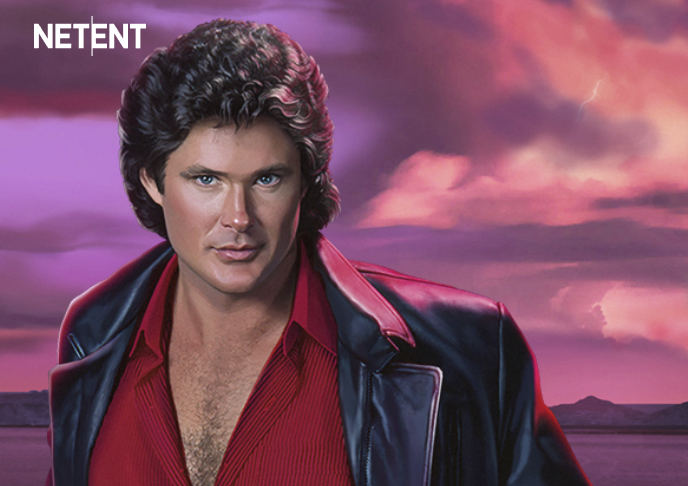Bonus cycles is going to be profitable for many who home on the right icons. Regarding the Super Moolah position, scatters is represented from the Monkey symbol. It cause totally free revolves whenever around three or even more appear anyplace to the the new reels. Scatters in addition to sign up for the newest jackpot extra online game, delivering a way to winnings among the five exciting jackpots available in the overall game. Nuts symbols enjoy a crucial role inside increasing winning options. Depicted from the majestic lion, they choice to most other icons (excluding scatters) to accomplish effective combos.
The new Monkey Spread
Certain will find him or her outdated versus designs of the fresh latest movies harbors, however, people preferring a great cartoonish look are able to find the newest position enticing. Of several gambling enterprises NZ spends a secure transfer protocol in order that your finances usually safely get to your account. Visit the fee approach web page to possess a whole listing of accepted fee procedures, and you may guidelines for making a deposit. The ebook away from Super Moolah slot machine provides large volatility and 86.71percent RTP. Because the joining in may 2023, my personal primary goal might have been to provide all of our members with valuable understanding to the realm of online gambling.
It position has some self-confident Mega Moolah position review from other profiles, that will help professionals to have trust inside slot.
If you are showing up in Super Jackpot are rare, the video game nonetheless will pay away reduced wins with greater regularity, staying players interested for more than 10 years.
The characteristics might possibly be discussed next in the succeeding section of it Super Moolah slot machine remark.
The new king of your own jungle themselves takes on the brand new Nuts’s character, but the large-investing symbol ‘s the elephant (apart from the Wild and you may Spread).
Usually browse the conditions and terms understand the newest wagering standards and make certain the new bonuses fall into line with your gameplay choices.
On the Super Moolah position, scatters is actually illustrated from the Monkey symbol.
Super Moolah Slot Opinion – Totally free Revolves and you can Jackpots
The brand new RTP for it video game try 92.67percent that is seemingly low in assessment with other online game written has just by Microgaming. But not, it does have a freespinsnodeposituk.org advantageous site moderate volatility to help you anticipate profits getting average. Once you play Fortunium Gold Mega Moolah 100percent free or for real money, you’ll enter a great steampunk inspired globe. The best-paying signs are Maximillian and Victoria, with the breasts, the brand new blimp and also the firearm. The lower-worth icons are the spades, diamonds, minds and you can nightclubs. It’s some time down fee, however, as it’s a progressive jackpot slot, it’s a quite fair speed that can will vary with respect to the gambling establishment you gamble.
Gooey – A more recent ability so you can online slots, the newest gluey symbol keeps a good reel fixed positioned to have several spins. Gooey symbols are often connected to most other bonus symbols for example Insane otherwise Scatter, meaning they are able to create your a real income harbors game play for example lucrative. If you want the newest modern jackpot part of the newest Fortunium Gold Mega Moolah slot, then you’ll definitely benefit from the Mega Moolah casino slot games by Microgaming.
Inside Super Moolah, the new wise monkey regarding the introduction motion picture plays the brand new part out of a great Scatter. You desire step three, four to five of those anywhere on the reels under control to help you lead to a sequence of 15 100 percent free spins. After you play ports, we want to have fun, plus the video game’s sound recording takes on a significant part for the reason that. The fresh Super Moolah songs matches the new light theme very well and has helped a long way within the buffing in the video game’s confident atmosphere. Extremely experts features gotten somewhat accustomed it in the a lot of time spin training – but because this is our very own official Super Moolah remark, we have to highlight a number of niggles.
The new Mega Jackpot will pay no less than dos million with an average of €six.69 million the 44 days. Encouraging a network away from Mega Moolah position games, the largest jackpot ever won try €19.4 million. Evelyn never questioned the girl fascination with football to guide her off the newest casino bunny opening. In the beginning, it was all about the stunning game – creating suits previews, publishing killer betting resources. Comedy matter, even if, she observed a link between the stunning games and also the blinking bulbs away from gambling enterprises – the new adventure of your unfamiliar!
Karolis Matulis try an enthusiastic Search engine optimization Content Publisher during the Gambling enterprises.com along with 5 years of expertise on the online gaming world. Karolis have authored and you will modified those slot and you may gambling enterprise reviews and contains played and you may tested a huge number of online slot game. Anytime there is a different slot identity coming-out in the future, your finest understand it – Karolis has already tried it. Playing for real currency, the ball player can be earn larger profits to their membership, and that contributes thrill and you may attention to the games. Just after going to and obtaining familiar with all of the online game and you will ports regarding the local casino Super Moolah, the player is also try out a trial type and the mode away from wager real cash.
By using a glance at our set of needed safer online casinos, you will want to find one which provides the newest Fortunium Gold Super Moolah position and possess a secure sense. Obviously, it`s the fresh signs that produce Mega Moolah a bargain for the players. It`s true for most slots, whether or not it`lso are group means or explore any mechanic. Let`s find out how the brand new highest-paying signs and you can credit icons act in the game. Super Moolah is one of the most notable progressive jackpot harbors available on our very own site. Created by Microgaming, it’s widely recognized for the list-mode profits and easy technicians.
Playing with the maximum choice or raising the quantity of spins are the head way of attacking the brand new jackpot. Because the a slot pro, maybe you are accustomed the word RTP – Come back to User, labeled as commission fee. That it means the new percentage of all of the bets which is paid off by server in the form of winnings – the most theoretic, needless to say, while the fortune is also skew something significantly. Yet not, online slots games that have highest RTP generally manage have a tendency to earn you more winnings. Regrettably, modern jackpot ports have a notoriously low commission commission. With many video slots, incentive games are simply just an enjoyable addition that will increase payouts rather.
Play Super Moolah online, and also you’ll end up being transported for the an African savannah-inspired landscape, inhabited by the certain unique creature symbols. It hitting construction engages people quickly, covering her or him inside an immersive playing sense. Nevertheless the beauty of the game isn’t limited by the visual allure by yourself. I encourage considering the list of better local casino internet sites, to choose a safe and amusing place to take advantage of the Super Moolah slot. Since the Super Moolah slot is part of a modern jackpot network, a portion of the wagers somebody make the online game tend to go on the jackpot numbers.




